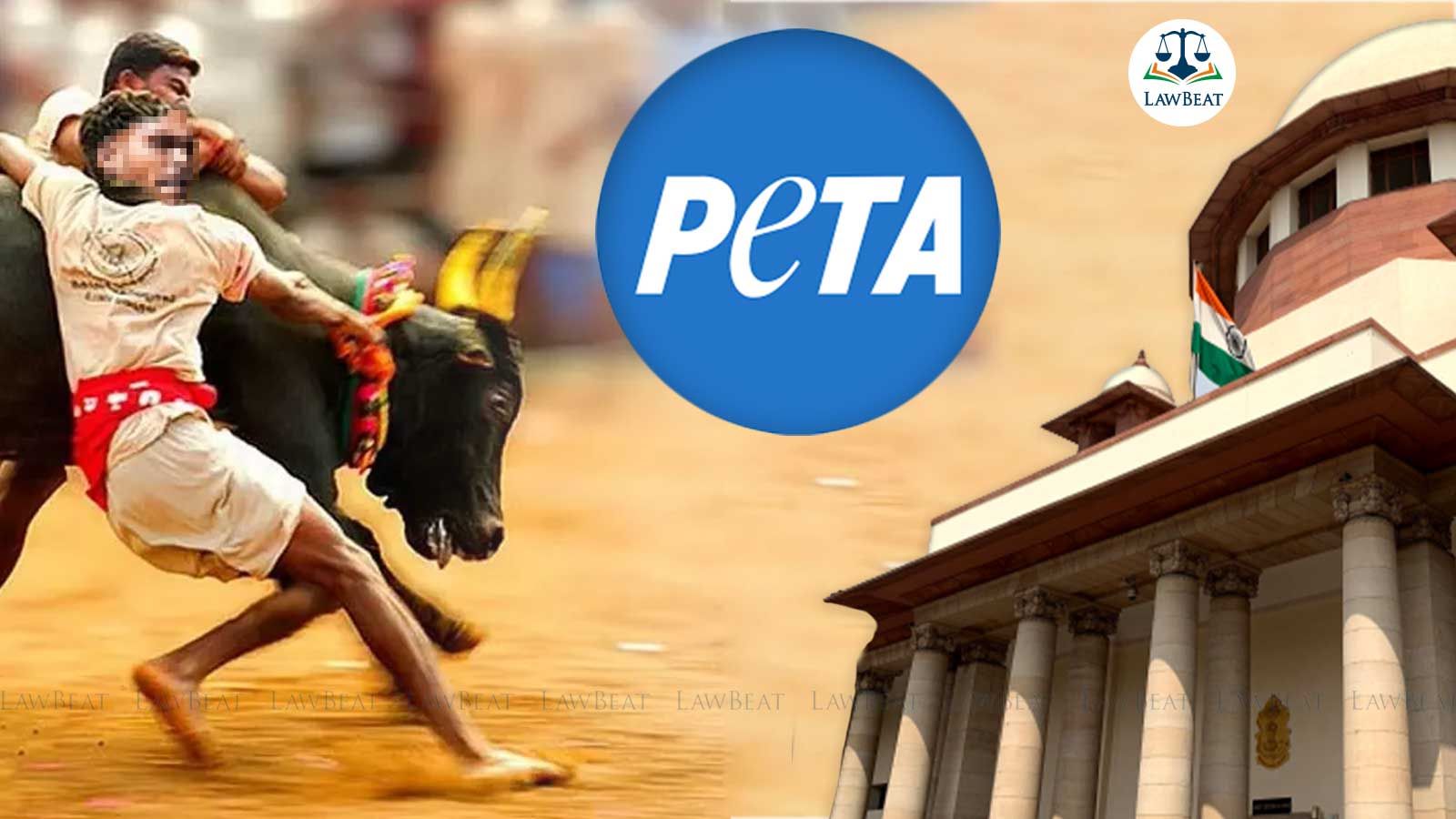"A retrograde step which contradicts animal welfare jurisprudence": PETA approaches Supreme Court seeking review of Jalikattu judgment

In its review plea, PETA submits that it had placed as many as 10 eye-witness reports between 2017 to 2022 (after the passage of the Impugned Amendments) documenting cruel treatment of animals in these sports, which were extensively referred to during the hearing and in the written submissions but were not even adverted to in the impugned Judgement.
People for the Ethical Treatment of Animals (PETA) has approached the Supreme Court of India challenging its judgment that upheld the validity of 2017 Tamil Nadu law for allowing bull taming sport 'Jallikattu'.
"The Judgement is a retrograde step which undoes dynamic and beneficial constitutional interpretation and contradicts established environmental law and animal welfare jurisprudence...", the review petition states.
A five-judge bench headed by Justice KM Joseph had affirmed the validity of Maharashtra and Karnataka laws enacted in 2017 to allow bull carts race and 'Kambala' respectively.
PETA has submitted that the Court upheld the constitutionality of the Prevention of Cruelty to Animals (Tamil Nadu Amendment) Act, 2017, Prevention of Cruelty to Animals (Maharashtra Amendment) Act, 2017, and Prevention of Cruelty to Animals (Karnataka Amendment) Act, 2017 without adverting to the extensive record placed before it.
"These ‘sports’ or races are premised on exploiting the ‘fight or flight response’ in the animals through violence, force and agitation as well as the threat thereof, to bait the animals to fight against humans or to coerce them into fleeing by running out of fright. These ‘sports’ are C against the natural instinct, behaviour and anatomy of the bulls/bullocks/buffaloes, serve no essential purpose, and cause untold suffering, pain and cruelty to the animals used for such ‘sports’. These dangerous activities, in particular, Jallikattu and the bullock cart races, also routinely result in numerous instances of grievous injuries and deaths of bulls, and also humans (including participants, spectators and minor children), every year...", the plea filed under Article 137 states.
On May 18, the top court's constitution bench, also comprising Justices Ajay Rastogi, Aniruddha Bose, Hrishikesh Roy and C T Ravikumar, had dismissed a batch of writ petitions filed by Animal Welfare Board of India and others against the three state legislations for being violative of the provisions of the Prevention of Cruelty to Animals Act and the Constitution.
"All the three bovine sports, after Amendment, assume different character in their performance and practice and for these reasons we do not accept the petitioners’ argument that the Amendment Acts were merely a piece of colourable legislation with cosmetic change to override judicial pronouncement. Once we read the amended Statutes withthe respective Rules or Notification, we do not find them to encroach upon the Central legislation," the bench had said.
Writing the judgement on part of the bench, Justice Bose said but whether this has become integral part of Tamil culture or not requires religious, cultural and social analysis in greater detail, which in our opinion, is an exercise that cannot be undertaken by the Judiciary.
The court did not accept the view that the division bench's judgement in A Nagaraj case (2014) which declared that performance of Jallikattu is not a part of the cultural heritage of the people of the State of Tamil Nadu.
Case Title: People for the Ethical Treatment of Animals (PETA) vs. State of Tamil Nadu and Ors.
